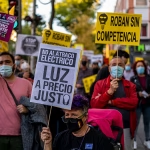As the summer heatwave continues to intensify across India, the demand for electricity has reached a seasonal high. According to data from the Ministry of Power, power demand in India has soared to 237 gigawatts, surpassing the previous record of 234 GW. With many parts of the country facing extreme heatwave conditions, the need for air conditioners and coolers has surged, leading to a spike in electricity consumption.
In Delhi, the peak power demand has reached an all-time high, reflecting the impact of the scorching temperatures on energy usage. The India Meteorological Department (IMD) has forecasted that heatwave conditions are likely to persist over the plains of Northwest India, Madhya Pradesh, and Gujarat in the coming days. In fact, the region has been experiencing heatwave conditions since mid-May, with temperatures soaring above 40 degrees Celsius in some areas.
The rise in electricity demand during the summer season has prompted the government to take proactive measures to ensure a continuous power supply. Various stakeholders in the energy sector have been urged to collaborate and implement strategies to prevent power shortages across states. With the IMD projecting higher-than-normal temperatures for the summer, the electricity demand is expected to surpass previous years’ levels.
In response to the escalating power demand, the government has emphasized the need for zero load shedding during the summer season. This includes conducting regular meetings and planning sessions to address the challenges of meeting electricity requirements in the face of extreme weather conditions. The peak energy demand has grown significantly, reflecting the impact of rising temperatures on power consumption across the country.
Despite the increased electricity demand, efforts are being made to bridge the energy shortfall and ensure uninterrupted power supply. The total electricity generated has seen a notable increase, as the government works towards meeting the rising energy requirements during the peak summer months. With the heatwave showing no signs of abating, the importance of effective energy management and planning cannot be overstated to meet the power demand and prevent disruptions in electricity supply.











